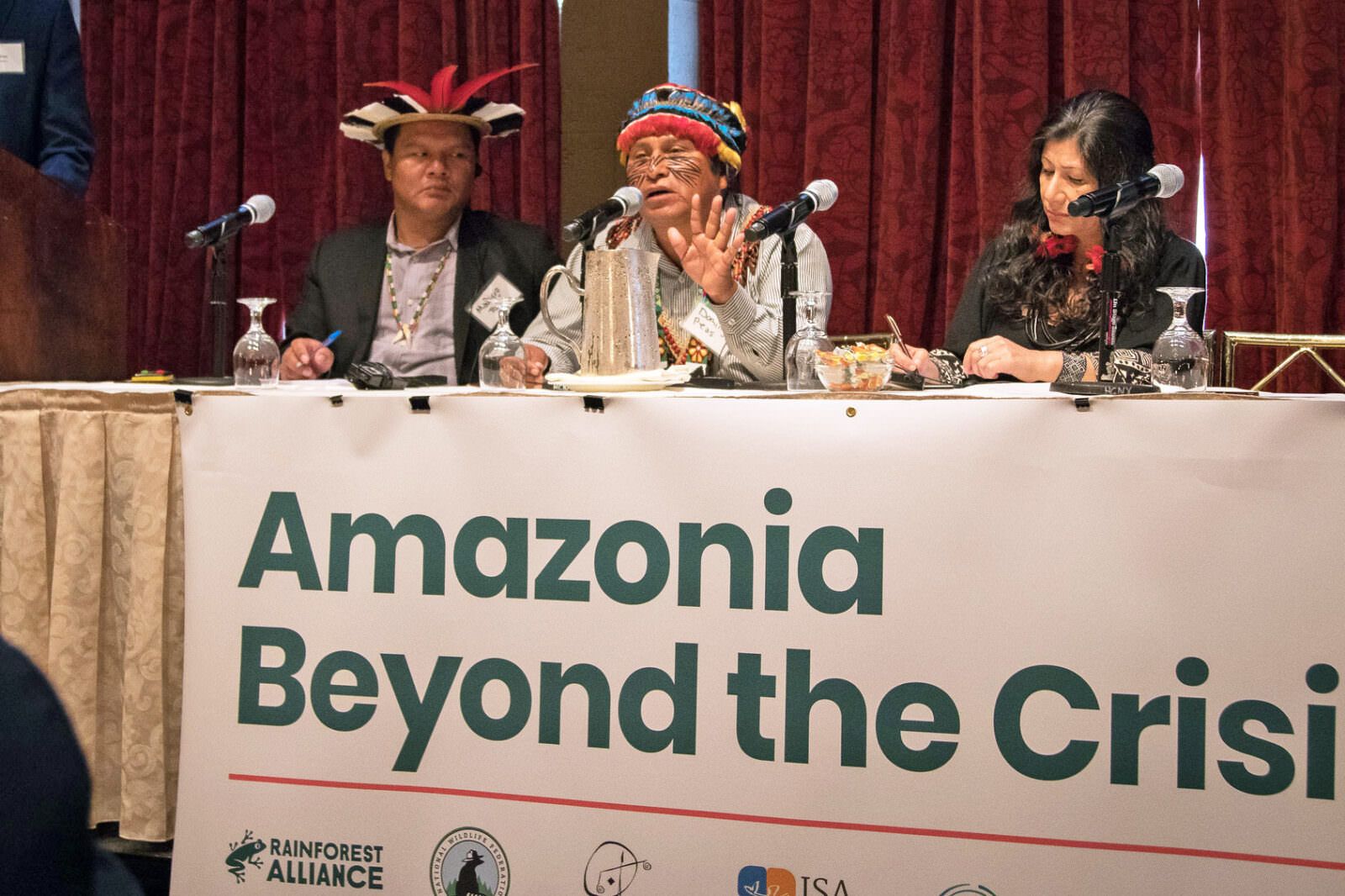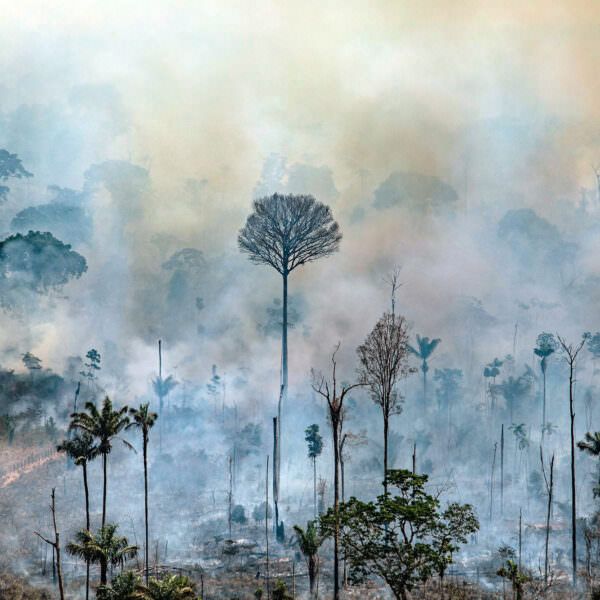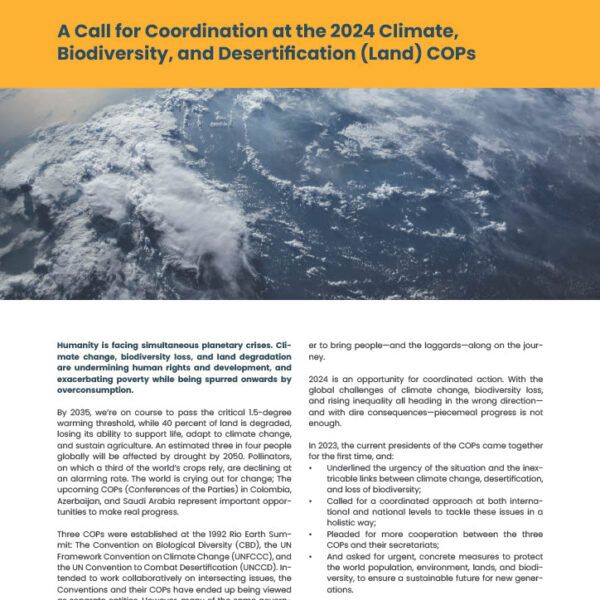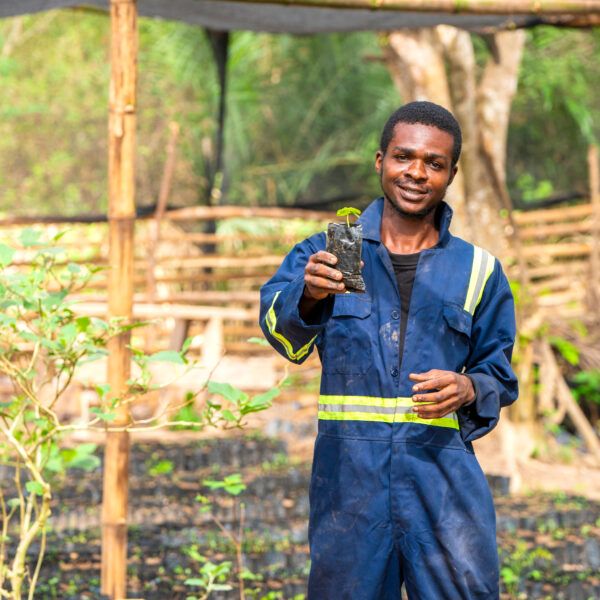The Rainforest Alliance co-organized a daylong conference in September for business leaders, Indigenous leaders, scientists, and representatives of civil society organizations to address the recent surge of deforestation and fires across the Amazon basin. Our New York and Brazil teams worked with several partner organizations (see statement below) to identify and invite leaders and experts who had already committed to traveling to New York City for the UN Climate Change Summit the following day.
The daylong program for “Amazonia Beyond the Crisis” covered various aspects of what is now widely understood to be a global emergency: the human rights of Indigenous Amazon peoples, the environmental consequences, the role of the cattle industry, the potential for market solutions, accountability, and immediate priorities. Simply convening such a diverse array of leaders was a milestone in and of itself. Given the gravity of the current threats to the Amazon, participants immediately set to work drafting the following call to action to save the world’s largest and most important rainforest.
Sign up for useful tips to green your life and protect our planet.
Accountability for Deforestation: A Declaration on Preventing Further Human Rights, Environmental and Economic Disaster
We, the participants of “Amazonia Beyond the Crisis Accountability for Deforestation: Preventing Further Human Rights, Environmental and Economic Disaster,” a convening held in New York City on 21 September 2019,
On the eve of the Global United Nations Climate Change Climate and the United Nations General Assembly,
At the initiative of No Peace Without Justice, Rainforest Alliance, National Wildlife Federation, Instituto Socioambiental (ISA), Sustainable Development Solutions Network, IMAZON, The Nando and Elsa Peretti Foundation;
Deeply concerned by the deforestation, fires, and other environmental and human rights violations in Amazonia and believing that the crisis happening now in the Amazon region was avoidable and therefore conscious that its repetition in the years to come is increasingly likely without concerted action at several levels to prevent it;
Stressing that continued deforestation could lead, in the opinion of globally-recognized scientists, to an irreversible dieback of the Amazon, with much of the rainforest deteriorating into a drier, fire-prone savannah ecosystem;
Conscious that systematic violations such as those that have occurred and are occurring in Amazonia are not a product of chance, neglect, or system failures, but the result of deliberate policy choices, explicit or implicit, by decision makers and at various levels;
Conscious that it is necessary for local actors to work closely with national decision makers and the regional and international community in order to prioritize resources and interventions necessary to tackle this issue;
Following enlightening and in-depth debates involving many of the most committed peoples and organisations working for the protection of the Amazonian forest and defence of human rights;
Solemnly declare:
- While the crisis in Amazonia is of primary concern to the communities of the countries whose territory it encompasses, its protection, reinforcement, care and well-being are also of critical global interest, as it is also a crucial part of the global life-support system.
- As such, the protection of Amazonia from deforestation, fragmentation, and irreversible degradation is also of critical global interest and, in this regard, any initiative devoted to agricultural, mining, or industrial exploitation must be monitored to avoid any new initiatives that do not respect environmental or human rights principles.
- It is essential to secure and protect the land rights of the indigenous people and traditional communities in Amazonia as well as to protect forests and other natural ecosystems by designating them for conservation and sustainable use.
- It is also fundamental to provide means and resources for local communities to strengthen their capacities to manage their land and the broader environment, to ensure dignified and sustainable livelihoods and at the same time to promote their participation in the decision-making process of strategies and solutions for the Amazon development.
- It is essential to improve the quality and productivity of existing agricultural systems in already deforested areas; to shift public subsidies for activities connected to deforestation and human rights violations to conservation, restoration, and sustainable use; and to ensure that loans or investments that use public or private funds comply with environmental laws.
- Governments must reduce the impunity of those who violate socio-environmental laws and create unfair competition with companies, groups, and individuals that are working to comply with the law.
- It is equally important to promote a knowledge- and service-based economy (rather than expanding the extractive model) by valuing ecosystem services aligned with technological innovation and traditional knowledge, so that we can establish new businesses that promote Amazonian socio-biodiversity.
- National, regional, and international markets should not boycott all Amazon products without discrimination. They should instead buy from sustainable sources from the region and partner with local governments and producers to assist in the transition to more sustainably producing systems.
- It is necessary to strengthen civil society capacity to guarantee human rights; to foster national, regional, and international pressure to resolve socio-environmental issues, improve law enforcement, end impunity for socio-environmental crimes; and to extend executive resources to agencies responsible for managing public lands, protected areas, indigenous lands, and the environmental integrity.
- Governments must take action to reverse the crisis, including not only preventing illegal fires and deforestation, but also ensuring the protection of human rights defenders and their ability to carry out their work.
- The Amazon and the issues raised in this document require urgent attention, and to that end, we commit to remaining engaged on these issues through continuous independent monitoring of the situation, with a particular focus on how to ensure accountability and the recognition of the rights of those who contribute to sustainability efforts.
We, the participants, who in large part include representatives of those most affected by the crisis in the Amazon, ask the Heads of State and Government participating in the Global United Nations Climate Change Summit and within the UN system more broadly to endorse and implement these recommendations, which we believe are essential for averting further crises and preventing an irreversible Amazon dieback.
Signatories:
The Rainforest Alliance
No Peace Without Justice
National Wildlife Federation
Instituto Socioambiental (ISA)
Sustainable Development Solutions Network
IMAZON
The Nando and Elsa Peretti Foundation




